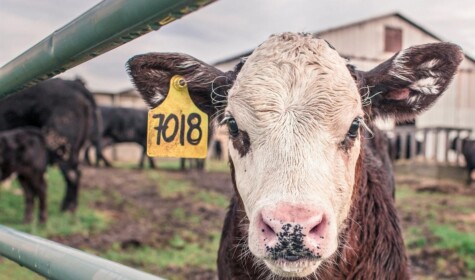Small abattoirs were the focus again at last week’s Oxford Real Farming Conference (ORFC), with an expert panel including Defra, farmers, abattoir owners and campaigners.
Chaired by John Mettrick, a small abattoir owner in Glossop and chair of the Abattoir Sector Group, panellists made a strong case for the importance of local infrastructure to support sustainable, high welfare farming systems.
In the context of discussion about funding for new abattoirs, which had been raised at the Oxford Farming Conference the previous day, the key issue for the abattoir sector is to maintain the existing network of diverse small abattoirs.
John Mettrick said, ‘As has been seen in the US, the meat industry has become too centralised and too top heavy with animals backing up on farms. If we just talk about capacity and throughput, we are heading towards a system that is vulnerable to shocks and which doesn’t serve more sustainable farming systems or local supply chains. We need a more resilient system.’
John Powell, Head of Agricultural Teams at Defra, said: ‘Defra recognises the role that abattoirs play in the rural economy. We are very committed to working with the abattoir sector on the challenges it is facing. While items for abattoirs did not make first round of equipment funding, there will be other rounds. There is also the adding value theme and we are looking to offer support to producer-owned abattoirs and mobile abattoirs. We are also actively looking to reduce the administrative burden but it will take time.’
Patrick Holden, CEO of the Sustainable Food Trust and organic dairy farmer, said:
‘Small abattoirs are an absolute lifeline for our farming business. We believe animals should not only have a good life but also a compassionate death, which we believe is impossible unless there is a local abattoir. Without local abattoirs, we simply will not be able to support the transition to sustainable farming systems. The small abattoir renaissance is not a marginal issue, it is an absolutely essential component of this transition plan.’
Peter Greig, founder of Pipers Farm, said: ‘More and more people are becoming aware of the food they put into their body and the impact on health. Meat should be part of a healthy, locally consumed diet.’
Kath Dalmeny, CEO of Sustain, said: ‘What are the pieces that need to be put in place to ensure agroecological farming will thrive? We need roots to market and right scale infrastructure. Supermarket infrastructure has benefitted enormously from public money. We should be rising up and claiming the money liberated from EU systems. We were promised that the money from the structural funds would be spent on rural communities and the climate agenda. Large amounts of money will be invested in green jobs and this should include abattoirs and infrastructure.’
Tom Blunt, Senior Conservation Officer at the Rare Breeds Survival Trust, said: ‘Native breed farmers tend to market outside of conventional supply chains. It is therefore vital that breeders can access local abattoirs. However, lack of a suitable abattoir was listed as one of the biggest barriers to keeping rare breeds in a recent RBST survey. This is not just about the number but the distribution of abattoirs.’
Marisa Heath from the Abattoir Sector Group ended the session by saying, ‘The role of infrastructure needs to keep being raised, talking about local food is great but that’s not possible without the infrastructure. Please help us by keeping on raising it with government.’


